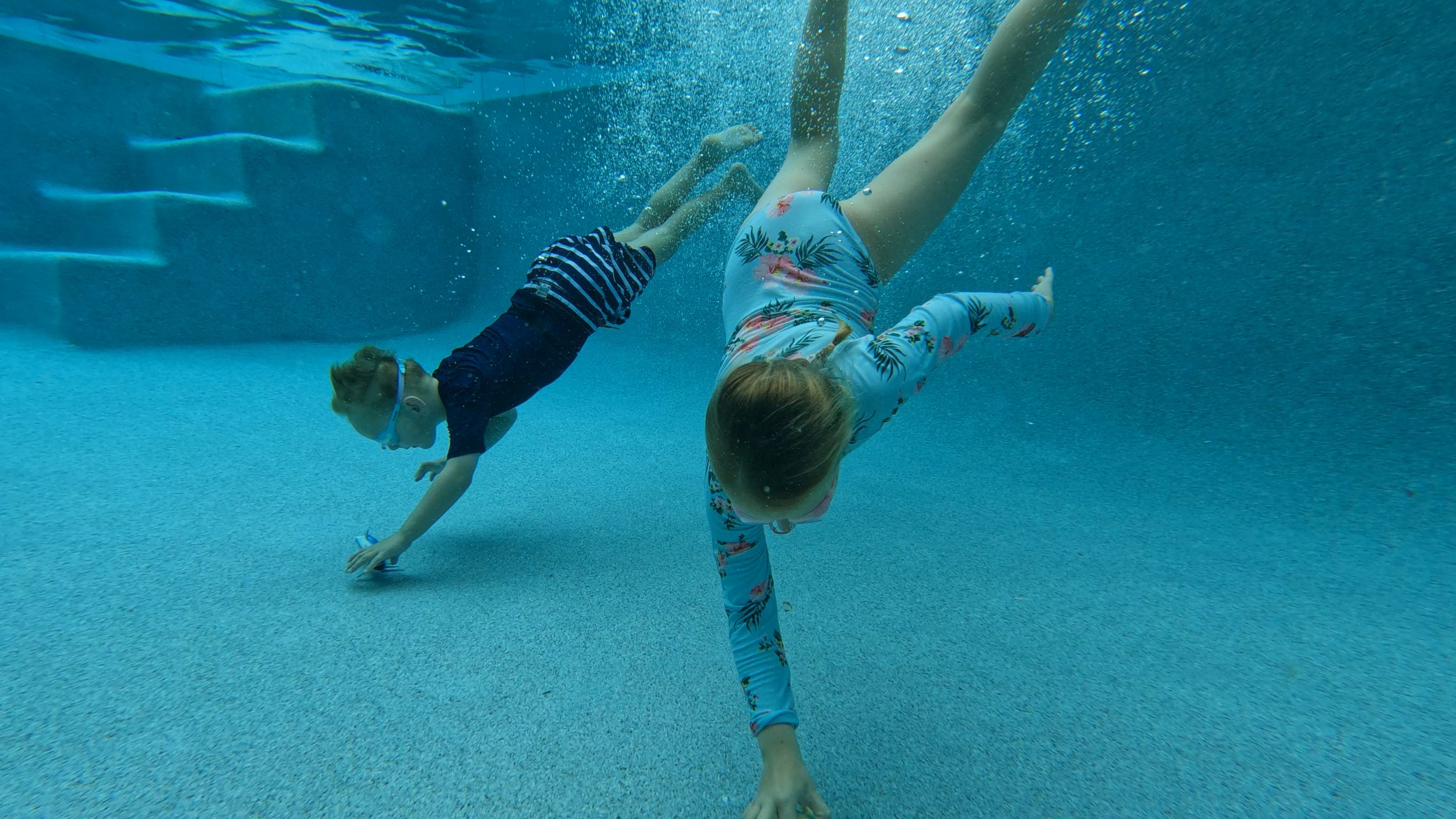Types Of Swim Classes
There are many different types of swim lessons. One-on-one classes can be the quickest way for your child to advance, however, based on their personality, they may benefit more from group lessons. Babies thrive learning with others and their parents. Some families may be looking to ensure their caretakers can swim at a level where they can keep up with their little ones as they learn. Luckily, you can choose from any of these types of lessons with me!
Read below about the differences.
Consider your child's personality, learning style, and goals. If they enjoy socializing and don't require extra attention, group lessons might be the way to go. If they need more individualized instruction or have specific needs, one-on-one lessons could be the better choice.
Group Swim Lessons (Intermediate to Advanced):
- More cost-effective (rates tend to be lower per student due to the divided instruction your child will receive).
- Opportunities for socialization and learning social skills
- Learning from peers
- More fun for some kids
- Suitable for children who enjoy socializing and learning with others.
- Encourages social skills and teamwork.
One-on-One Swim Lessons (All ages and levels):
- Undivided attention from the instructor
- Customized lesson plan
- Flexible scheduling
- Faster progress and customized lesson plans
- Better for kids with fear or anxiety of water
- Ideal for children who require personalized attention or have special needs.
Types of Lessons Depending on Skill Level
Let’s look into the different types of classes you can take depending on your student’s skill level and what they will learn…
Parent & Baby, Toddler, and Preschooler Swim Lessons (Group
or private available, starting at 6 months of age):
I’ve touched on this topic before in another blog post, but here are some general advantages of taking classes with your little ones:
- Provides a fun and unique bonding experience for parents and their children. I often incorporate music, toys, and games, making the experience enjoyable for parents and babies
- Teaches children comfort, independence, and water survival skills with their parents
- Enhances spatial awareness and problem-solving skills
- Boosts physical strength and growth in children
- Improves cognitive development in babies
- Increases confidence and commitment
- Enhances social skills and coordination
- Reduces the risk of drowning
- Improves sleep and appetite
- Improves overall health and well-being
- Teaches children comfort, independence, and water survival skills
-Motor skills development
-Low-impact exercise (beneficial for babies and their parents)
You can always choose to learn with siblings or friends. Here are the benefits of group parent & baby classes:
-Bonding experience: Group parent and me swim classes offer a unique bonding experience for mothers and their babies through skin-on-skin contact and shared fun.
-Learning from peers: Babies can learn from each other in a group setting, such as overcoming fears and gaining confidence.
-Social benefits: Group classes provide opportunities for socialization among mothers and babies, creating a sense of community.
-Built-in rest time: Group swim classes offer built-in rest periods, allowing babies to process and reflect on new skills.
-Cost-Effective: Group classes can be a more affordable option compared to private lessons.
General Swimming Basics Classes (All ages, group or one-on-one):
Basic swimming skills classes provide a supportive and encouraging environment for individuals to learn and grow in the water. Here are some benefits:
-Water comfort: Become comfortable in the water, reducing fear and anxiety.
-Water safety: Learn basic water safety skills, reducing the risk of drowning.
-Floating and recovery: Master floating and recovery skills, essential for water safety.
-Breathing techniques: Learn proper breathing techniques, improving overall swimming ability.
-Kicking and arm strokes: Develop fundamental kicking and arm strokes, building a strong foundation for swimming.
-Independence: Gain independence in the water, boosting confidence and self-esteem.
-Foundation for future skills: Build a solid foundation for learning more advanced swimming skills.
-Improved coordination: Develop coordination and timing in the water.
-Lifelong skill: Acquiring basic swimming skills can lead to a lifelong enjoyment of swimming and a healthy lifestyle.
Stroke Development Classes (Group or one-on-one):
As I talked about in my most recent blog post, swim lessons aren’t only meant for beginners. Here’s what you can learn when working to enhance your skills:
-Improved technique: Focus on proper technique and form in various strokes, such as freestyle, backstroke, breaststroke, and butterfly
-Efficient swimming: Learn to swim with ease and efficiency, reducing fatigue and improving overall swimming ability
-Increased endurance: Build cardiovascular endurance and stamina through swimming laps and drills
-Enhanced coordination: Develop coordination and timing in the water, improving overall swimming ability
-Preparation for competition: Stroke development classes can prepare swimmers for competitive swimming, if desired
-Injury prevention: Proper technique and form can help prevent injuries and reduce the risk of overuse
-Improved safety: Knowing various strokes and techniques can improve water safety and survival skills.
-Personal growth: Achieving goals and improving skills can lead to a sense of accomplishment and personal growth.
Keep in mind that the best type of swim lesson for your child will depend on their age, skill level, and comfort in the water. You can research and choose a class that you believe aligns with your child's needs and provides a safe and supportive learning environment, but I can always adjust your lesson plan according to their progress. Sign up by clicking book a class below!

